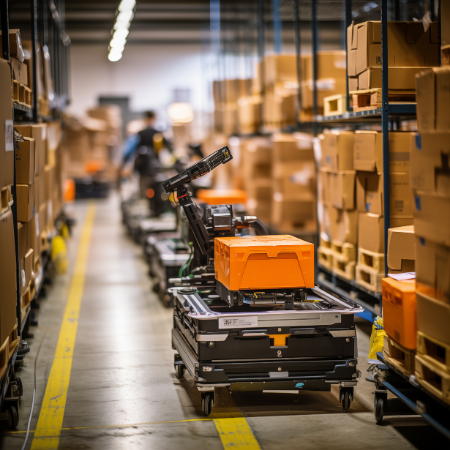Standardising Logistics With Returnable Pallet & Asset Pooling
Challenge: A leading automotive manufacturer in India operated multiple plants and relied on single‑use wooden pallets and cardboard packaging. These materials were costly, inconsistent in size and frequently damaged, leading to product defects and production stoppages. The disposable packaging also generated large volumes of waste, conflicting with the company’s sustainability goals. Logistics costs were high because empty pallets returned from one plant to another occupied significant space, and inconsistent packaging hampered efficient truck loading.
Solution: ULS Pooling worked with the OEM to transition to a standardised pool of reusable pallets and returnable containers designed specifically for automotive components. Drawing on ALSCO’s global experience, ULS provided high‑durability plastic pallet boxes with uniform dimensions and custom inserts that protected delicate parts during transit. These robust containers withstand repeated use and minimize damage, ensuring parts arrive in perfect condition. Because returnable packaging is designed for multiple shipping cycles, it eliminates the need to purchase new packaging for every shipment. ULS also introduced pallet pooling, enabling the OEM to rent standardized pallets rather than own them, reducing capital expenditure and ensuring availability across plants.
To optimize operations, ULS deployed IoT tracking tags on every pallet. Real‑time asset tracking prevents loss and theft, optimizes asset utilization and ensures that assets are available when and where they are needed. IoT devices eliminate manual processes and errors and enable proactive maintenance. Data analytics from ULS’s platform provided insights into pallet usage and enabled predictive forecasts for supply and maintenance.
Results: The switch to reusable packaging reduced the OEM’s packaging cost per shipment because the durable containers could be reused many times. Standardized containers optimized truck loading and storage space, leading to fewer shipments and lower transportation costs. The OEM also reduced waste management costs and regulatory fees because reusable packaging minimizes waste. Environmentally, the solution significantly lowered material waste and CO₂ emissions; industry data show that switching to reusable transport packaging can cut solid‑waste generation by 86 %, CO₂ emissions by 60 % and energy consumption by 64 %. IoT tracking increased asset visibility, enabling the company to prevent theft and delays while making data‑driven decisions. Overall, the manufacturer achieved smoother production flow, fewer line stoppages and improved sustainability.

Project Duration
14 Months
Role
ULS Pooling engaged with the OEM over a 14‑month period. Our role spanned the entire project lifecycle: we conducted an initial audit of packaging flows, designed customised reusable pallet boxes and inserts, established pooling hubs near each plant, and implemented an IoT‑enabled tracking system. We trained the OEM’s logistics staff on handling reusable pallets and provided ongoing asset management and maintenance services. Throughout the project we coordinated with ALSCO’s engineering teams to adapt global best practices for the Indian market and ensure regulatory compliance.

